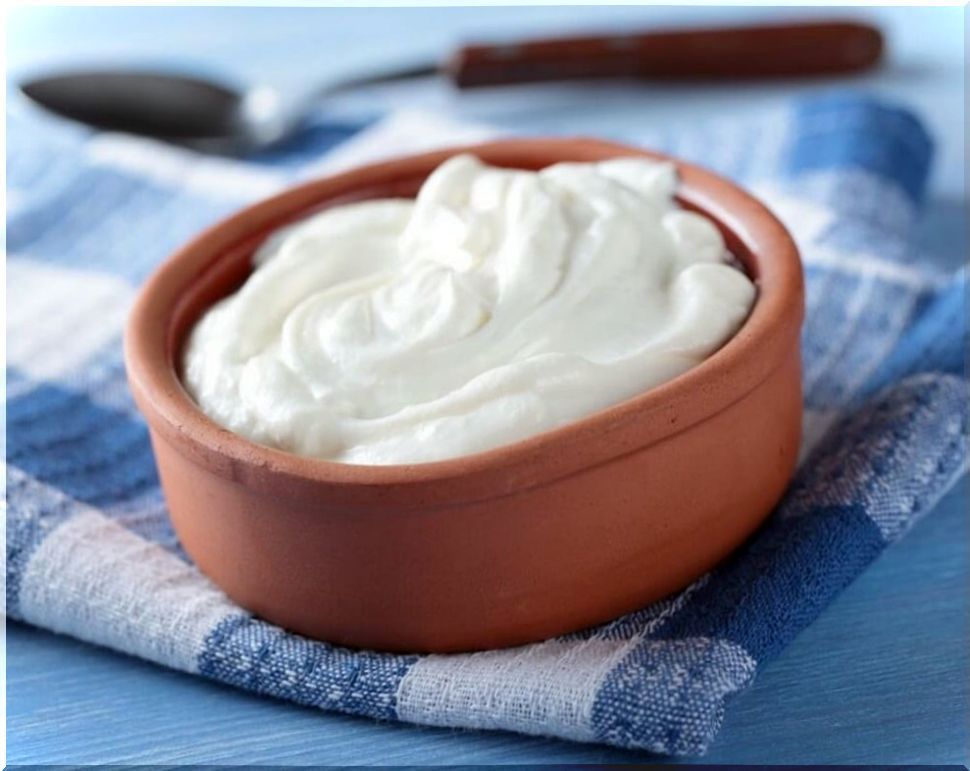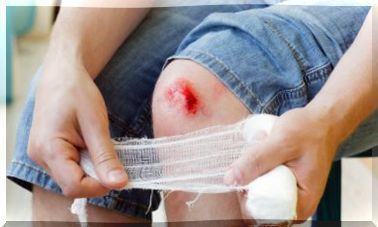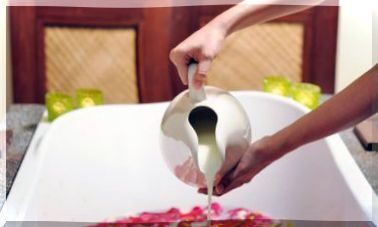8 Natural Remedies For Mouth Ulcers
Although applying baking soda to mouth ulcers may bother us a bit, it is one of the best ways to accelerate their healing

According to this report from the US National Library of Medicine, mouth sores, canker sores, or ulcers are a blister that has a defined red border and a white or yellow center. Therefore, they represent a nuisance for which natural remedies for ulcers are sought.
They usually appear on the inside of the lips or cheeks, and on the tongue, becoming painful and annoying when we eat, talk or drink.
In the following article, we will tell you some natural remedies to heal them faster.
Why do mouth ulcers occur?
Before knowing the natural remedies for mouth ulcers, it would be good for you to know what causes their appearance. According to this study carried out by the Complutense University of Madrid, the main reasons for mouth ulcers are:
- Teeth rubbing or biting
- Infections and low defenses
- Hormonal changes
- Stress and anxiety
- Nutritional deficiencies, allergies, or heartburn
If they develop frequently enough, it may be because you are eating an unbalanced or unhealthy diet.
For example, we recommend that you stop consuming spicy or highly seasoned foods. These irritate the mucous membranes and increase the likelihood of sore formation.
In turn, do not forget to drink 2 liters of water per day to always keep your mouth hydrated and to add more vitamin B to your diet to avoid this problem.
The foods that most contain them are:
- Seeds (sunflower, pumpkin, flax, sesame)
- Nuts (almonds, hazelnuts, walnuts)
- Whole grains (rice, wheat germ, millet, oats)
- Legumes (lentils, chickpeas, beans)
- Fruits (apple, raspberry, orange)
- Vegetables (potato, onion, spinach, garlic)
Natural remedies for mouth ulcers
Relieve aches and pains and aid in the healing of mouth sores with the following natural remedies for ulcers:
1. Medicinal plants

We can get them in the herbalist and they have many benefits. Buy those that have antiseptic, anti-inflammatory, antibacterial, or digestive properties. Among them are:
- Chamomile
- Calendula, as suggested by this research carried out by the Goiás Federal University (Brazil).
- Rosemary. This is stated in this study carried out by the Universidade Estadual Paulista (Brazil).
- Salvia, as stated in this study carried out by the Mashhad University of Medical Sciences (Iran).
Preparation is the same in all cases.
Ingredients
- 1 tablespoon of leaves of the chosen herb (10 g)
- 1 cup of water (250 ml)
Preparation
- First, place the water and the leaves of the plant in a saucepan.
- Then, place on the fire and heat until it boils.
- Cook for 15 minutes and remove from heat.
- Then, let it infuse for 10 minutes and filter.
- Lastly, drink before it reaches room temperature.
- If you wish, you can sweeten it with a tablespoon of honey (25 g).
2. Coconut milk
Although you can get this vegetable milk in health food stores (bottled), we recommend that you buy the fruit of the coconut tree. This is stated in this study by The Himalaya Drug Company.
It is not that easy to find, but the benefits are much greater.
- Then, rinse the liquid inside three to four times a day.
3. Tea tree oil
It is an essential oil with great antiseptic properties that eliminates fungi, bacteria and other microorganisms found in the mouth, as reported in this study by the Medical University of Silesia in Katowice (Poland).
As it is very strong, we advise you to dilute it in equal parts with water or an infusion of herbs.
- Simply, use as a mouthwash paying more attention to where the sores are.
- Then, let 20 minutes pass until you consume some food or drink, since it will continue to act even if the liquid is not in the mouth.
- Lastly, repeat two or three times a day.
4. Aloe vera
It is a powerful antiseptic that, according to this study carried out by Qassim University (Saudi Arabia), also offers its anti-inflammatory, regenerating and moisturizing properties.
It is one of the home remedies that you cannot miss at home, either because we have ulcers in the mouth or for any skin condition (burns, cuts, rashes, etc.).
Best of all, its use is very simple.
- First, cut an aloe leaf in half and remove the inner gel.
- Then apply generously to the sore and let it dry (do not rinse).
- Finally, you can also mix it with water to have an excellent mouthwash.
5. Yogurt?

It is believed that between the beneficial bacteria, and the acid in the milk that make up this dairy, they will be in charge of controlling the oral pH and at the same time curing canker sores. However, there is no scientific evidence to support this assumption, although there are no contraindications in this regard.
6. Baking soda?
This is one of the most effective natural remedies for ulcers but, at the same time, somewhat painful. For this reason, we do not recommend it unless you have spoken with a specialist before.
There are two options to take advantage of the benefits of bicarbonate:
- On the one hand, creating a paste with water (both ingredients in equal proportions).
- On the other hand, diluting in a glass of water to use as a mouthwash.
Another alternative if you don’t have baking soda is to use fine table salt.
7. Ice
When mouth ulcers first appear, the area is likely to become inflamed and very red.
- A good way to reduce these discomfort is to place an ice cube on the wound, according to this study carried out by the University of Las Américas (Chile).
- We recommend that you wrap it in a cloth or plastic bag first because otherwise it will burn the skin.
- Lastly, keep the cold as much as possible.
8. Hydrogen peroxide
The hydrogen peroxide is another home remedies for mouth ulcers that can be very useful to you. It has antiseptic properties and helps in healing.
- You can apply hydrogen peroxide directly with a cotton swab or dilute it with water as a mouthwash.
Do not hesitate to try these natural remedies for ulcers but, if they persist, go to a specialist.









